George Marshall was sworn in as Secretary of State January 21, 1947, just after he returned from working as Special Representative to the President in China for over a year.
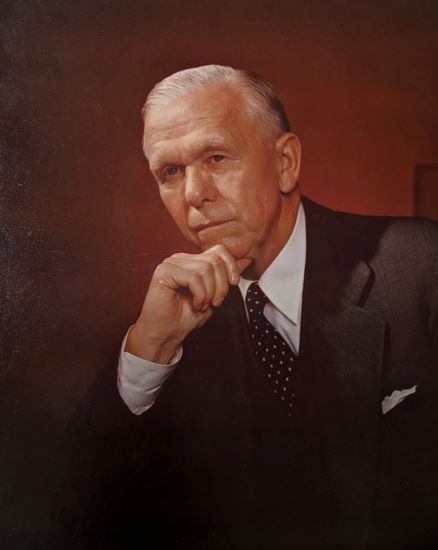
George Marshall Secretary of State portrait
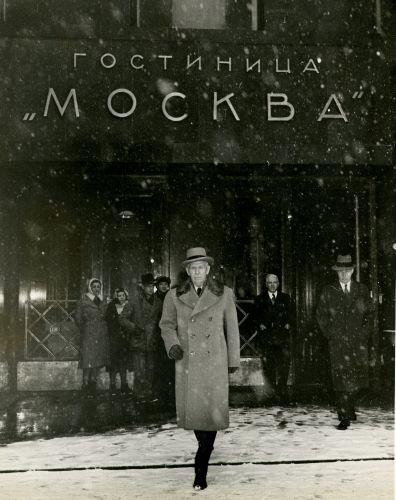
Secretary Marshall exiting the “Gostinitsa Moskva,” or “Hotel Moscow.”
Marshall’s first international conference was at the Moscow Conference of Foreign Ministers, held March 10-April 24, 1947. The conference didn’t end with the agreements settling the postwar-European questions the Americans attending hoped for, and some attendees felt that the Soviet Union began re-interpreting earlier agreements from Yalta and Potsdam to their benefit.
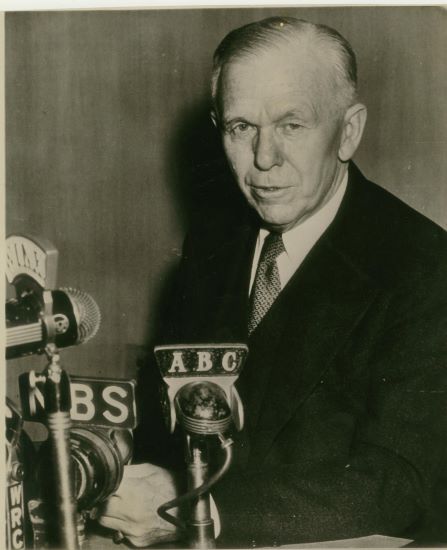
In an Apr 28, 1947, radio broadcast, Secretary Marshall reported on the outcome of the conference in a most diplomatic manner:
“This conference dealt with the vital center of Europe – Germany and Austria. In the Moscow negotiations all the disagreements … came into sharp focus and remained in effect unsolved.
These issues are matters of vast importance to the lives of the people of Europe and to the future course of world history. We must not compromise on great principles in order to achieve agreement for agreement’s sake.
We cannot ignore the factor of time involved here. The recovery of Europe has been far slower than had been expected. Disintegrating forces are becoming evident. The patient is sinking while the doctors deliberate.”
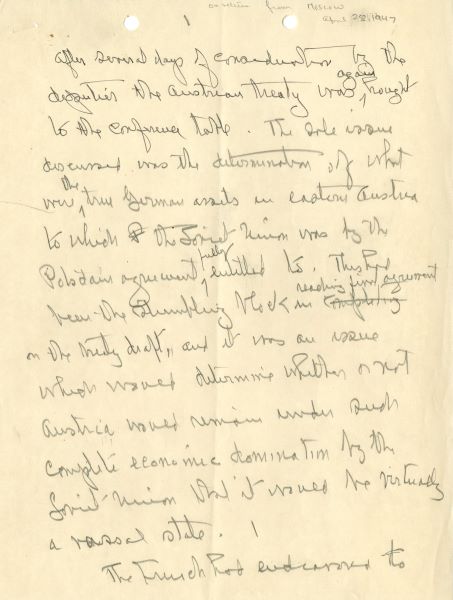
These are Marshall’s handwritten notes for this broadcast speech. He frequently wrote his own speeches, and rewrote speeches others crafted for him.
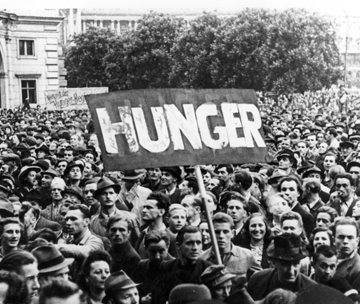
This is a protest in post-war Germany – not for jobs or housing, but food.
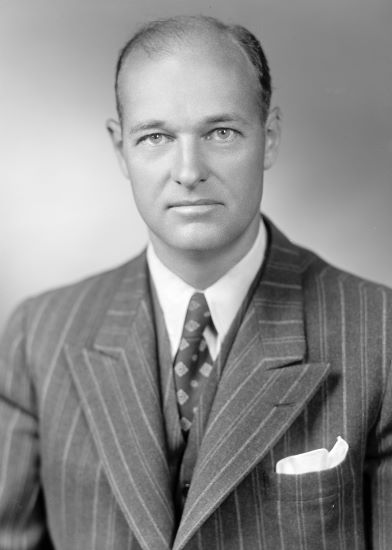
George Kennan
After the conference, George Kennan, who had attended, took a longer view in his speech “Problems of U.S. Foreign Policy after Moscow,” given May 6, 1947.
He said, “The Soviet leaders do expect to meet us again in negotiation on these questions, and they expect that when that time comes they will be in a better bargaining position and we in a worse one than today. In other words, their analysis of the situation has led them to conclude that they stand to gain and we stand to lose by a further delay in the negotiation of a European settlement. That realization alone could explain the attitude they adopted at Moscow.
The second factor which looms large in Soviet strategy is the strong probability-as they see it-that we will not be able to muster, as a nation, the leadership, the imagination, the political skill, the material resources, and above all the national self-discipline necessary to bring material stability, confidence, and hope for the future to those areas of Western Europe which have been brought low by the war.”
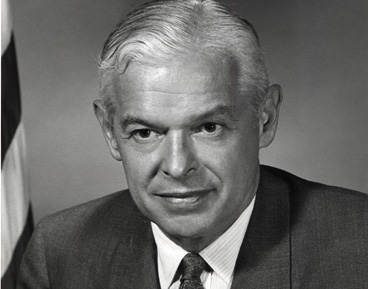
Paul Nitze (above) recounted later that when Marshall returned from Moscow, he “came back feeling deeply that he had been sent off with inadequate instructions. He was used to having completed staff work before anything was done. He made his people really work through all the alternatives and recommend which alternative should be followed and why and how it was to be implemented.”
Marshall pulled George Kennan from the National War College to organize and head the new Policy Planning Staff, which would examine short- and long-term problems, solutions, and intended and unintended consequences, and make recommendations directly to the Secretary of State. Marshall wanted the group organized immediately – he told Kennan “I don’t want to wait” and advised the group to “avoid trivia.”
In the beginning, the Policy Planning staff was very small. Besides Kennan, a few early members included Dorothy Fosdick, Charles “Bert” Marshall, and Paul Nitze.
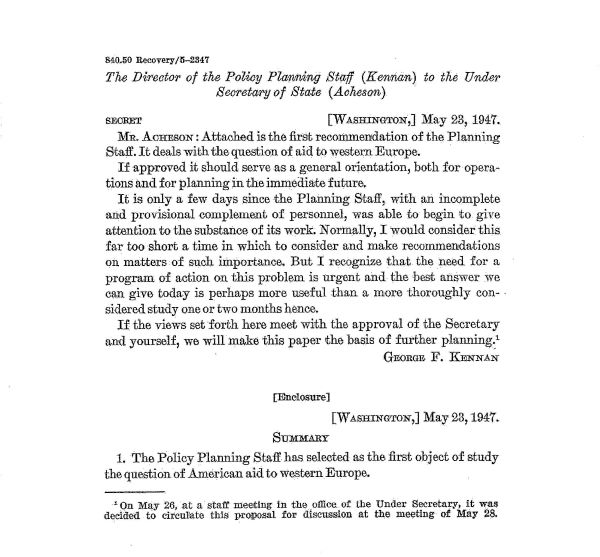
The staff didn’t wait to get started; 18 days after being organized, the Policy Planning Staff delivered their first recommendations to Secretary Marshall on aid to Western Europe. On the first page, Kennan wrote: “Normally, I would consider this far too short a time in which to consider and make recommendations on matters of such importance. But I recognize that the need for a program of action on this problem is urgent and the best answer we can give today is perhaps more useful than a more thoroughly considered study one or two months hence.”
The Policy Planning Staff is still part of the State Department, and reports directly to the Secretary of State, as Marshall designed. The mission has remained essentially the same, which Secretary of State Dean Acheson described: “To anticipate the emerging form of things to come, to reappraise policies which had acquired their own momentum and went on after the reasons for them had ceased, and to stimulate and, when necessary, to devise basic policies crucial to the conduct of our foreign affairs.”
Marshall’s organization and mission of the Policy Planning Staff is not his only influence on today’s staff; “avoid trivia” is still repeated on a regular basis.
Melissa has been at GCMF since Fall 2019, and previously was an academic librarian specializing in history. She and her husband, John, have three grown children, and live in Rockbridge County with three large rescue dogs. Keep up with her @MelissasLibrary
